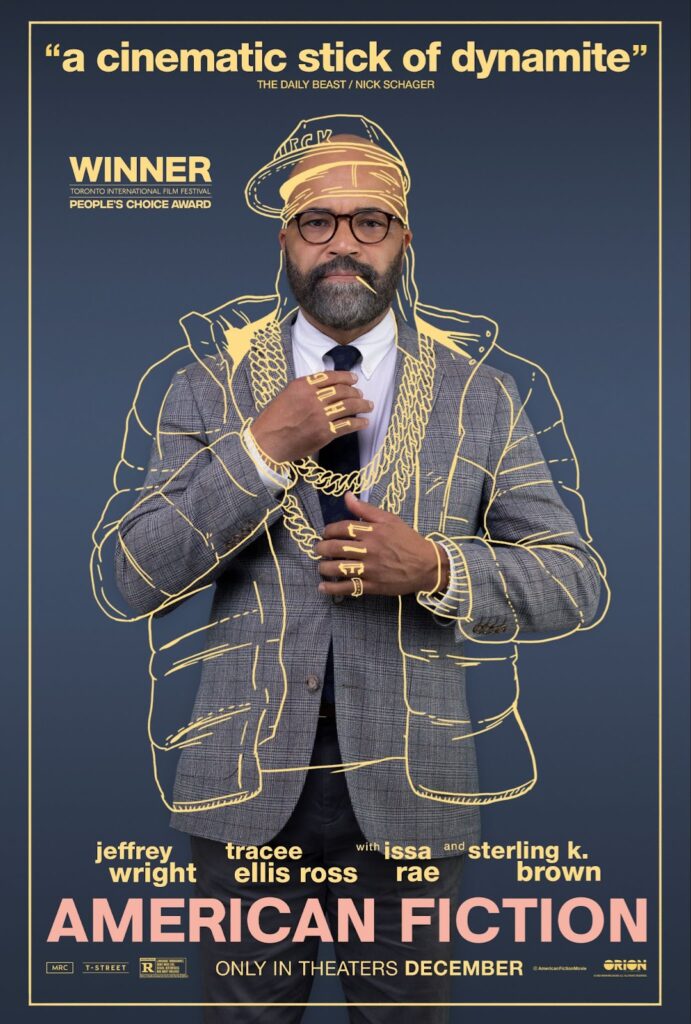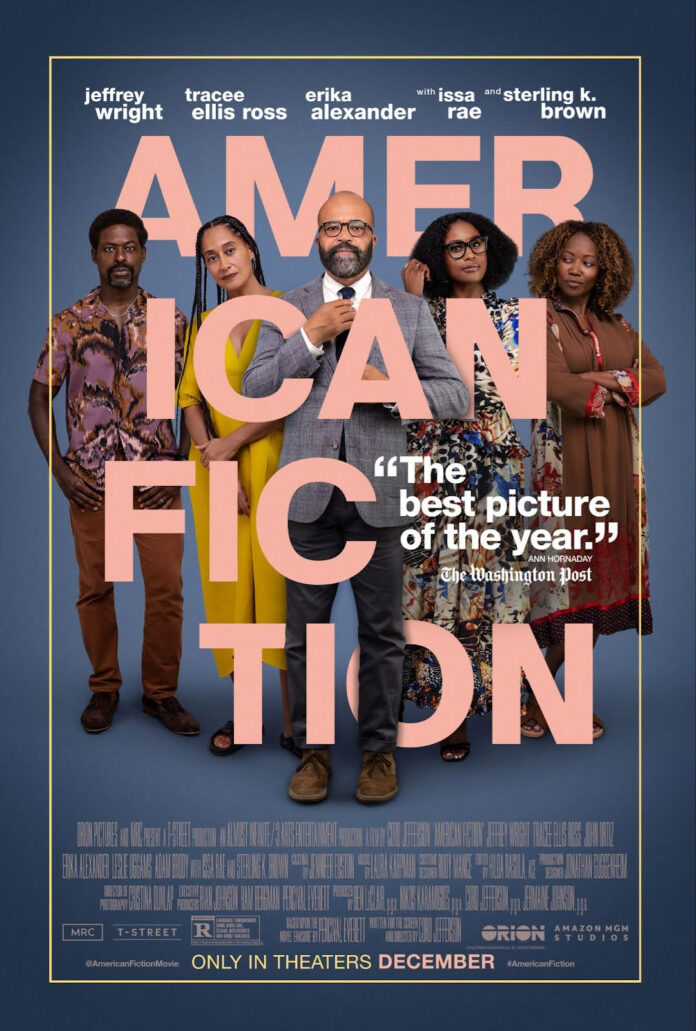( ENSPIRE Entertainment ) Navigating Stereotypes, Family Ties, and Media Influence
AMERICAN FICTION is Cord Jefferson’s hilarious directorial debut, which confronts our culture’s obsession with reducing people to outrageous stereotypes. Jeffrey Wright stars as Monk, a frustrated novelist who’s fed up with the establishment profiting from “Black” entertainment that relies on tired and offensive tropes. To prove his point, Monk uses a pen name to write an outlandish “Black” book of his own, a book that propels him to the heart of hypocrisy and the madness he claims to disdain.
The story follows Monk’s decision to pen an intentionally outrageous “Black” book under a pseudonym, expecting to expose the hypocrisy within the industry. However, things take an unexpected turn when the book becomes a sensation, thrusting Monk into the very heart of the madness he sought to criticize.

The ensemble cast, including Tracee Ellis Ross, Issa Rae, and Sterling K. Brown, adds depth and nuance to the narrative. Ross’s portrayal of Monk’s sister brings a brief yet impactful layer to the film, touching on themes of family dynamics and the importance of staying connected.

One of the film’s strengths lies in its exploration of family relationships, underscored by the character dynamics and the impact of a troubled family history. The complexities of acceptance, the weight of past mistakes, and the desire for familial connection are skillfully woven into the storyline.

The editor’s reflection on the movie resonates with its exploration of the impact of media and entertainment on societal perspectives. The film invites audiences to question the prevalent stereotypes perpetuated by the industry and how they shape perceptions of race and culture. The family dynamics in the movie serve as a poignant reminder of the importance of maintaining connections despite differences.
The film successfully navigates the intersection of race, entertainment, and family, prompting viewers to reevaluate their views on what constitutes acceptable representation in literature and media. Jefferson masterfully crafts a narrative that challenges preconceived notions and invites introspection.

“American Fiction” is a timely and essential watch, encouraging audiences to reflect on their own perspectives and the societal expectations that shape our understanding of Black culture. As the movie hits theaters on December 14, it presents an opportunity for a broader conversation about the impact of media on our perceptions and the need for more diverse and authentic representation.
In a landscape where popular culture often dictates our understanding of different communities, “American Fiction” stands as a compelling reminder that there is more to the story than meets the eye. It’s a call to action, urging viewers to engage in meaningful conversations about the narratives that shape our collective consciousness. Don’t miss this thought-provoking and entertaining exploration of culture, family, and the power of storytelling.
Related Articles: Roderick Lawrence, Co-Founder of Black Man Films with Short Film “Speak Up Brotha!”, 27th Annual Urbanworld Film Festival Opens With ‘American Fiction’ Screening







